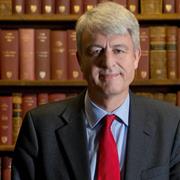
Andrew Walker QC reflects on the impact of a lack of consultation & the challenges of rushed court reforms
Those who suggest that the Bar is set against the court reform programme are wrong. There is much that we support, but not all.
When they speak of court reform, many think only of technology or investment in infrastructure, and that will be my focus here, but there are strands to the programme that have little, if anything, to do with these. The aim, for example, to broaden the range of judicial decisions that are made by non-judges (and even non-lawyers), under the ‘supervision’ of judges, is more concerned with greater centralisation of services and with savings in the judicial salaries budget. Whether or not this is truly a matter of ‘reform’, it is critical that judicial decisions should continue to be made by judges, independently from the executive branch of government.
So far as technology and infrastructure are concerned, a sum of around £1.1bn is being spent on this, across









